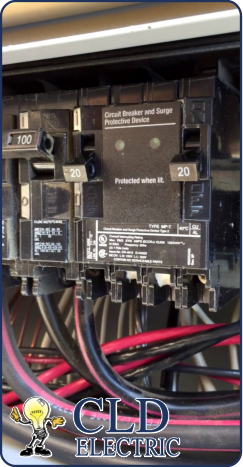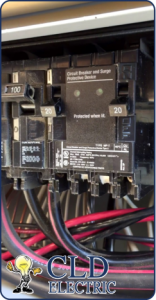

A power surge is an electrical occurrence where there is an unexpected boost in the electrical voltage. This could end up damaging or destroying your household appliances. Power surges can either be small or large. Although power surges can occur rather often, you can go years in your home without ever experiencing it.
The payment for damages gotten from power surges depends on what caused the power surge and the kind of insurance you have. If lightning strikes or other external factors caused the power surge, then your home insurance should cover the damages. If electrical overload or bad wiring caused it, then you’d be responsible for paying for the damages.
Signs of a Power Surge
Here are a few signs that may indicate that you’re about to experience a power surge.
- Flickering or buzzing lights
- Smoking or Heated outlets
- Discolored outlets or Fraying wiring
- Odd odors coming from your outlets
These signs may also be a sign of another electrical problem. Either way, you’d have to take extra care to protect yourself, your home, and your appliances. If you’ve encountered any of these signs, the first thing you’d have to do is a quick check of all your appliances. Try to figure out where else and how many appliances are being affected. If your outlets are damaged, you should unplug any appliances plugged into them and check them in other outlets to see if they’ve been damaged. If you suspect a power surge coming in, unplug all appliances to try to minimize the damage.
Causes of Power Surge
- Faulty Wiring: Most electrical problems stem from faulty electrical wiring. Having good wiring can save you and your home from several electrical issues. Damaged or frayed wiring makes it easier for you to have power surges. If you have burned or heated outlets or your outlets smell odd, unplug all appliances and call a professional to have them checked and fixed.
- Power Outage or Blackouts: These occur during a storm or grid failure. While the power outage may be expected, the sudden boost in current when the power is restored may be more than damaging to appliances.
- Electrical Overloads: This happens when a huge amount of current is drawn from a single circuit. It could be a result of using an extension cord too often or plugging in too many appliances.
- Lightning Strikes: Lightning Strikes can trigger a power surge if there is direct contact with the power lines. This results in a massive amount of voltage leading to a power surge. We advise that you turn off all your outlets and unplug all your appliances during storms.
Protecting your home from power surges is more than just unplugging your appliances. Scheduling regular check-ins to know the state of your home’s wiring and investing in surge protectors are also good ways to protect your home.
